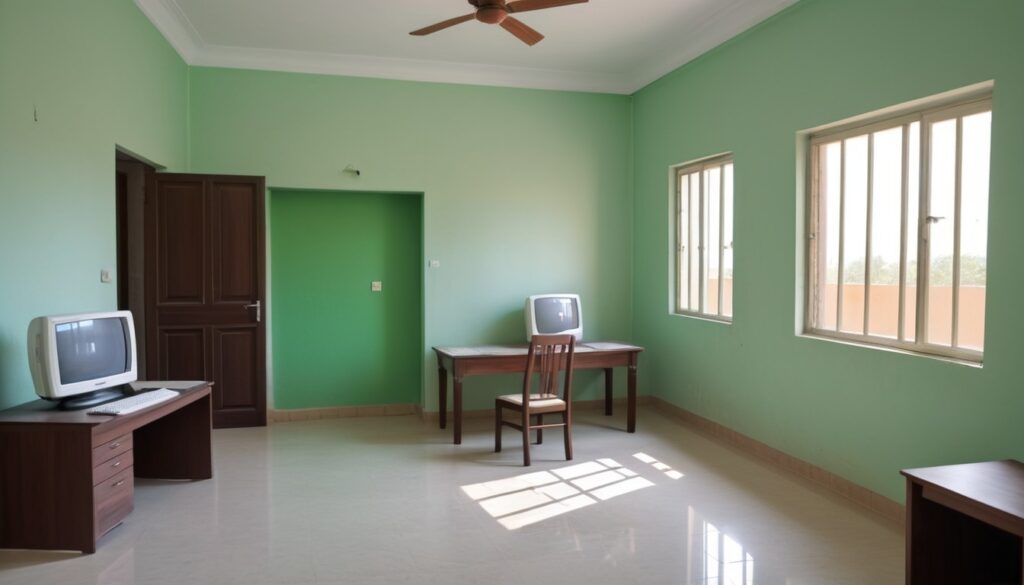
Find information about the various kinds of homes for intellectually impaired people, their advantages, how to choose the best fit, and answers to commonly asked questions.
It’s important to choose the appropriate living arrangement for a person with intellectual disability. Homes for Intellectually Handicapped People provide a secure, nurturing atmosphere that encourages self-reliance, development, and a feeling of community. This article examines the different kinds of houses that are out there, the advantages they offer, and how to choose the ideal one for your loved one.
Understanding Intellectual Disabilities
The Maharashtra government’s Department of Social Justice & Special Assistance oversees the “Homes for Intellectually Impaired Persons” program. The Juvenile Justice (Care & Protection of Children) Act 2000 and Amendment Act 2006 established the district’s Child Welfare Committee, which oversees the admission of mentally deficient children into shelter homes in need of care and protection. There are 19 MDC dwellings total, of which 14 are approved and 5 are not.
A person’s ability to reason, solve problems, and learn is affected by a variety of diseases that are together referred to as intellectual disabilities (IDs). Individuals with ID could have trouble taking care of themselves, communicating with others, and living alone. The severity of ID varies widely; some people need intensive support, while others are able to live more independently with some help.
Types of Homes for Intellectually Impaired Persons

Homes for Intellectually Impaired People come in a variety of forms, each meeting the requirements and degrees of freedom of their occupants. Below is a summary of the most popular choices:
- Collective Houses: These houses offer a shared living space to a limited number of people with ID (usually 4–8). While living quarters such as kitchens, living rooms, and toilets are shared, residents enjoy private bedrooms. Employees assist with everyday tasks, taking medications, and interacting with others.
- Supported Living: This choice gives people with ID the opportunity to live in more independent settings, frequently in their own flats or single-family houses. Regular visits by support professionals help with everyday chores, financial planning, and social interaction.
- Intermediate Care Facilities (ICFs): ICFs offer those who need more care a regulated setting under constant observation. They provide support with many facets of daily life, such as transportation, medication administration, and personal cleanliness.
Benefits of Homes For Intellectually Impaired Persons
- Children with mental disabilities who require care and security are brought into shelter homes.
- These houses offer free services such as food, housing, and care and security.
Eligibility
- The candidate must be an Indian citizen.
- The candidate needs to be an orphan.
- The candidate must reside in Maharashtra State permanently.
- A mentally deficient child (MDC) in need of care and protection should be the petitioner.
- At least 40% of the population should be disabled.
Application Process
Offline
Step 1: Go to the Child Welfare Committee and ask the relevant authority for a physical copy of the application form format for the scheme.
Step 2: Complete the application form by filling in all required fields, attaching all required documents (self-attested), and pasting the passport-sized photo (signed across).
Step 3: Deliver the completed and signed application form to the concerned Child Welfare Committee’s office together with the necessary paperwork.
Step 4: Obtain the office’s receipt or acknowledgement that the application form was successfully submitted.
Documents Required
- Aadhar card
- 2-Photo in passport size (signed across).
- Evidence of Age: Birth Certificate, etc.
- The Maharashtra State Residential/Domicile Certificate.
- Certificate of Disability.
- Information about the Bank Account (Name, Address, IFSC, Branch Name, etc.).
- whatever further paperwork that the Child Welfare Committee mandates.
Sources And References
FAQs about Homes for Intellectually Impaired Persons
What is the difference between a group home and an ICF?
Group homes offer a more independent living environment for individuals who can manage some aspects of daily living, while ICFs provide a higher level of care and supervision for individuals with more complex needs.
Can residents have visitors in Homes for Intellectually Impaired Persons?
Yes, residents typically have the right to receive visitors from family and friends. Each home may have specific guidelines regarding visitation times and procedures.
Do Homes for Intellectually Impaired Persons offer transportation?
Some homes may offer transportation assistance for appointments, errands, or social outings. It’s important to inquire about transportation availability during the selection process.
In summary
Homes for Intellectually Impaired People are essential for assisting those who have ID and enhancing their quality of life. These residences can encourage independence, development, and a feeling of community by offering a secure, encouraging, and exciting environment. You may be certain that your loved one will find the ideal home that satisfies their unique demands if you carefully evaluate their needs and look into the many possibilities accessible.

